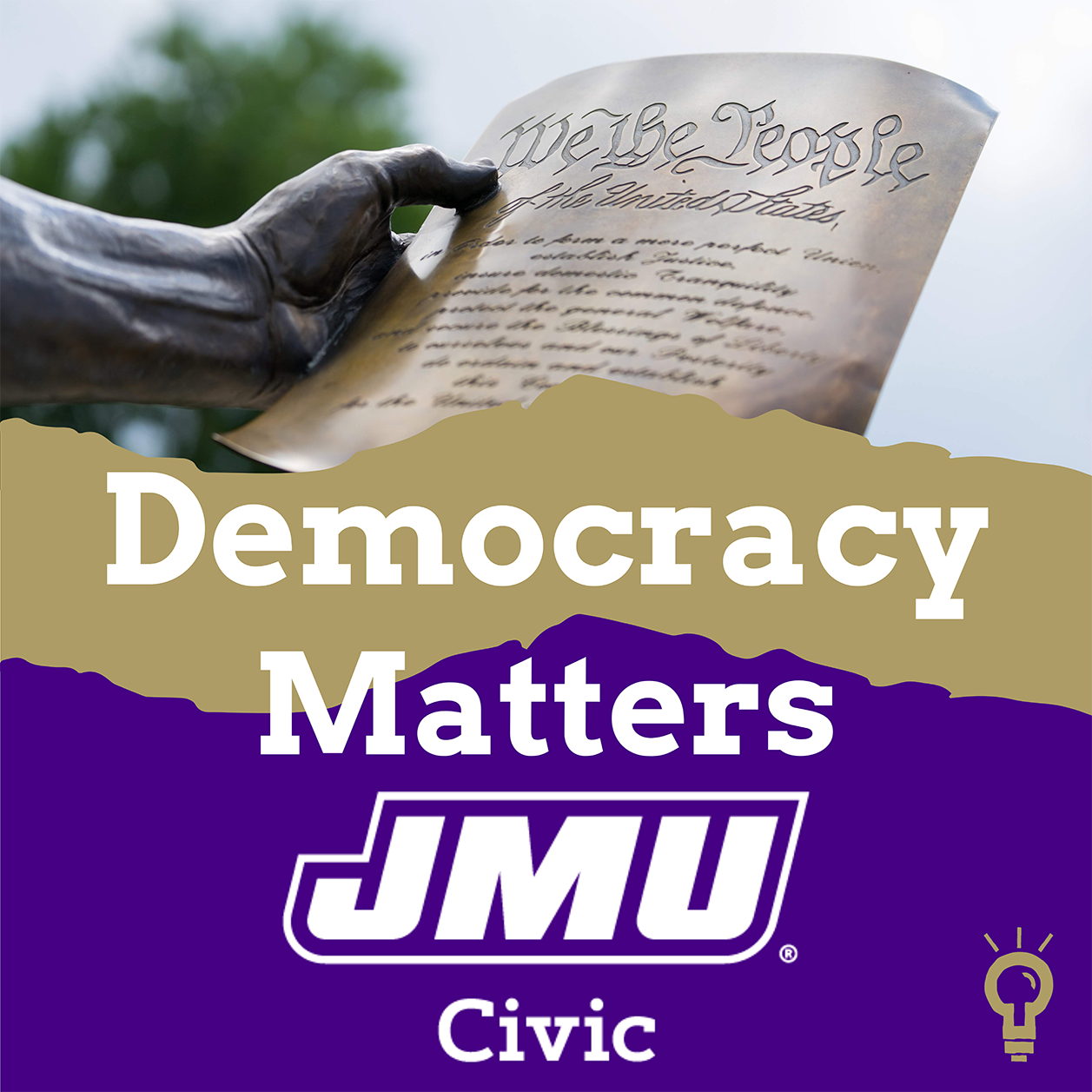Democracy Matters - Episode 21: Counting for Community Resilience: Census in the Time of COVID
News
SUMMARY: Even before the COVID-19 pandemic, the 2020 Census faced serious challenges to achieving a complete and accurate count because of politics, budget restrictions, employing new technology and because social media amplifies the spread of misinformation and disinformation. The global public health crisis has thrown into sharp relief the importance of a complete count, including: ensuring accurate representation in governmental institutions, having accurate data for healthcare infrastructure and emergency preparedness, and access to funding communities desperately need. In this episode of Democracy Matters, we talk with Jonathan Derks, Kearstin Kimm, Tristan Thorgersen, and Abby Wallen about their work this semester to reach hard-to-count communities.
We are living in extraordinary times that pose great challenges to our society, economy and democracy. The emergence and spread of COVID-19 has forced public and private actors to react with unprecedented speed to the growing global public health crisis, and it has created widespread fear and uncertainty - especially for communities and industries most vulnerable to disruption by virus-related demand declines, shutdowns and layoffs.
Even before the COVID-19 pandemic, the 2020 Census faced serious challenges to achieving a complete and accurate count because of politics, budget restrictions, employing new technology (2020 is the first time the Census Bureau urges most households to submit their census responses online), and because social media amplifies the spread of misinformation and disinformation.
The global public health crisis has thrown into sharp relief the importance of an accurate count - from ensuring accurate representation in Congress to getting the funding communities desperately need. Results of the 2020 Census will determine how many representatives each state has in the U.S. House of Representatives and serve as the basis for redistricting at the local, state and federal levels. Statistics from the census will also help local, state and federal officials decide how to spend billions of dollars in federal funds every year for the next ten years on vital public services like education, health care, infrastructure and transportation. Ensuring a complete count can help surrounding towns and regions rebound from the social and economic impacts related to the COVID-19 pandemic and contribute to the long-term vitality of those communities.
In this episode of Democracy Matters, we talk with JMU students Jonathan Derks, Kearstin Kimm, Tristan Thorgersen, and Abby Wallen enrolled in an interdisciplinary course focused on educating about the importance of the census and facilitating get-out-the-count initiatives in hard-to-reach communities.
The Democracy Counts course was designed and co-led by Dr. Carah Ong Whaley (JMU Civic, Political Science), Professor Cathy Copeland (Writing, Rhetoric and Technical Communication) and Professor Adrienne Hooker (School of Media Arts and Design), with contributions from Dr. Kala Melchiori (Psychology) and Dr. Henry Way (Geography). Dr. Dena Pastor (Graduate Psychology, Center for Assessment and Research Studies) led 2020 Census assessment efforts in collaboration with JMU Civic. JMU students who also contributed to the course and census efforts not featured in this podcast: Zachary Hill (filming for multilingual multimedia), Serena Gilbert, Christian Lavollo, Emily Baker, Caroline Byrd, Angelina Clapp, Anna Connole, Ethan Gardner, Sarah Gully, Leeyah Jackson, Aaliyah McLean, Drew Persinger, Zachary Popovich, and Destiny Wells.
Special thanks to our partners at U.S. Census Bureau, Harrisonburg City Government, Rockingham County Government, Harrisonburg City Schools and Rockingham County Schools.
Links in this episode:
